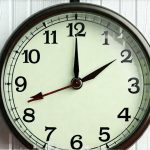Prostatitis, inflammation of the prostate gland, can be a source of significant discomfort for men, often manifesting in a variety of urinary symptoms. Among these, frequent urination is one of the most common and disruptive complaints. Understanding why prostatitis leads to this symptom requires delving into the anatomy of the prostate, its function, and how inflammation impacts bladder control and signaling pathways. This article will explore the connection between prostatitis and frequent urination, aiming to provide a comprehensive overview of the underlying mechanisms at play.
Frequent urination associated with prostatitis isn’t simply about needing to go more often; it can encompass urgency (a sudden, compelling need to urinate), nocturia (waking up multiple times during the night to urinate), and even incomplete emptying of the bladder. These symptoms can significantly impact daily life, disrupting sleep, work, and social activities. It’s important to remember that frequent urination is a symptom, not a disease itself, and identifying its root cause is crucial for appropriate management.
Understanding the Prostate and Its Role
The prostate gland is a walnut-sized organ located below the bladder and in front of the rectum. It plays a vital role in producing prostatic fluid, one of the components of semen that helps nourish and transport sperm. Situated closely around the urethra – the tube that carries urine from the bladder out of the body – any inflammation or enlargement of the prostate can directly impact urinary function.
The intricate relationship between the prostate gland and the urinary system makes it susceptible to disruption when inflammation occurs, leading to a cascade of symptoms including frequent urination. The prostate’s location means even slight swelling can press on the urethra, altering bladder control mechanisms.
Types of Prostatitis & Their Impact on Urination
Prostatitis isn’t a single condition; it encompasses several different types, each with varying causes and symptom presentations. Acute bacterial prostatitis is caused by a sudden bacterial infection, typically resulting in severe symptoms like fever, chills, and intense pain alongside urinary issues. Chronic bacterial prostatitis represents a recurring or persistent bacterial infection, often with milder but ongoing symptoms. Chronic prostatitis/chronic pelvic pain syndrome (CP/CPPS) is the most common type, characterized by chronic pelvic pain and urinary symptoms without evidence of bacterial infection. Finally, asymptomatic inflammatory prostatitis shows inflammation during testing but does not cause any symptoms. The specific type of prostatitis influences the nature and severity of frequent urination.
How Inflammation Affects Bladder Control
Inflammation within the prostate gland can directly irritate the surrounding nerves that control bladder function. This irritation sends false signals to the brain, creating a sense of urgency even when the bladder isn’t full or doesn’t need emptying. Essentially, the nerve pathways responsible for detecting bladder fullness become hypersensitive due to inflammation, triggering an increased frequency of perceived needs to urinate.
The inflammatory response also releases various chemical mediators that further exacerbate this sensitivity. These substances can directly stimulate the detrusor muscle – the muscle in the bladder wall responsible for contraction during urination – causing involuntary contractions and contributing to urgency and frequent trips to the bathroom. The result is a cycle where inflammation leads to nerve irritation, increased bladder sensitivity, and ultimately, more frequent urination.
Urethral Compression & Obstruction
The prostate gland’s anatomical location surrounding the urethra means that any swelling or enlargement caused by prostatitis can compress the urethral passage. This compression creates an obstruction that partially blocks urine flow. To compensate for this resistance, the bladder must work harder to expel urine, often resulting in incomplete emptying and a feeling of persistent fullness.
This incomplete emptying then triggers further urges to urinate as the body attempts to rid itself of the remaining urine. Over time, chronic compression can also lead to changes in the bladder muscle itself, making it more irritable and contributing to an increased frequency of urination even beyond what’s directly caused by the prostate inflammation. The cycle continues with the pressure and discomfort that accompanies a partially obstructed urethra.
Nocturia & Sleep Disruption
Frequent urination at night, known as nocturia, is particularly debilitating for those experiencing prostatitis. Several factors contribute to this symptom. Increased urine production due to hormonal changes or fluid intake can play a role, but are often exacerbated by the inflammatory process in the prostate. As inflammation affects bladder control and leads to incomplete emptying during the day, more urine accumulates in the bladder, increasing the likelihood of needing to urinate at night.
Furthermore, discomfort from prostatitis pain itself can disrupt sleep patterns, leading to awakenings that further contribute to perceived urgency and frequent trips to the bathroom. The combination of physical discomfort and disrupted sleep creates a vicious cycle that significantly impacts quality of life and overall well-being. Addressing nocturia often involves managing both the underlying prostatic inflammation and optimizing daytime urinary habits.
Ultimately, understanding the complex interplay between prostatitis, prostate anatomy, nerve function, and bladder control is essential for appreciating why frequent urination is such a common symptom. Recognizing that this isn’t merely an inconvenience but a manifestation of underlying physiological changes can empower individuals to seek appropriate evaluation and management strategies.





















